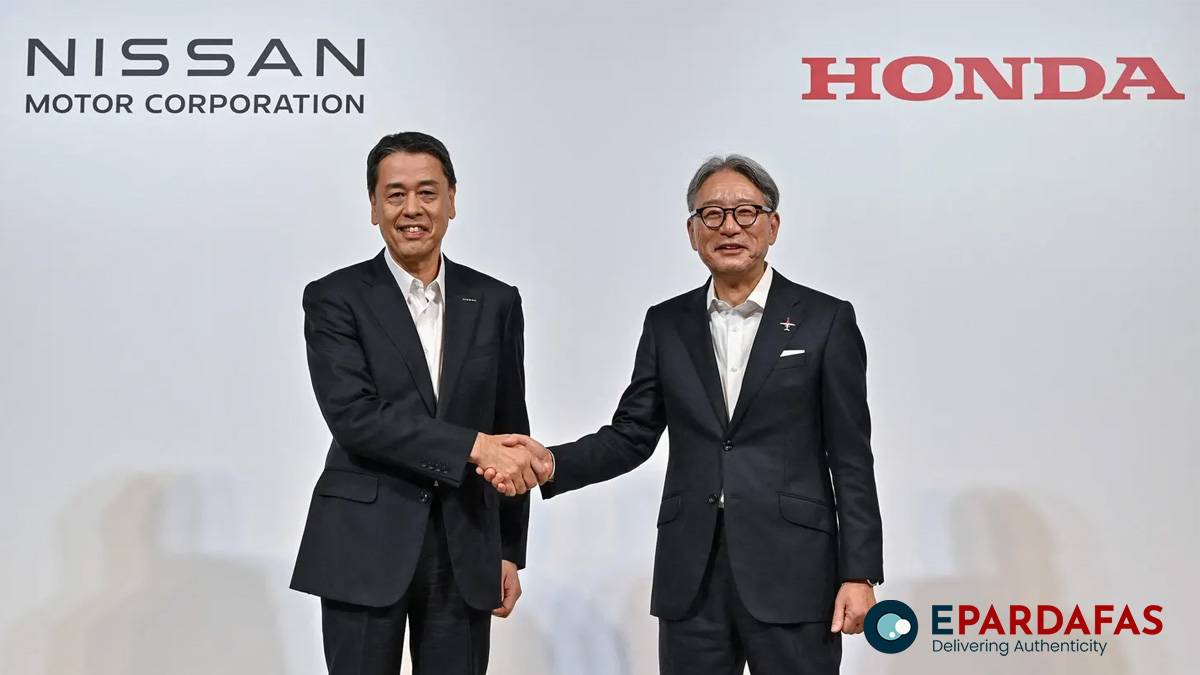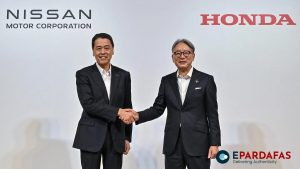
Honda and Nissan Reportedly in Merger Talks to Compete in Electric Vehicle Market

Japanese automotive giants Honda and Nissan are in preliminary discussions about a potential merger, according to reports by Nikkei and the Financial Times. A tie-up could position the companies to better compete with electric vehicle (EV) leaders like Tesla and rising Chinese manufacturers.
Earlier this year, Honda and Nissan announced plans to explore a strategic partnership focused on EVs, an area where Japanese automakers have faced increasing pressure to keep up with global competitors.
A Honda spokesperson confirmed that discussions are ongoing but emphasized that no decisions have been made. “We are exploring possibilities for cooperation between Honda and Nissan in various areas, including the latest reports, but nothing has been finalized,” the spokesperson told AFP.
Similarly, Nissan issued a statement reiterating its March announcement of exploring collaboration opportunities with Honda, adding that updates will be provided when appropriate.
Reports suggest that Honda and Nissan are considering establishing a single holding company, which may also include Mitsubishi Motors—of which Nissan is the largest shareholder. If finalized, the move would create one of the world’s largest automotive groups.
Market reactions to the news were swift. Nissan shares surged over 20 percent in early trading, while Honda shares dipped by more than one percent. Mitsubishi Motors shares also jumped by 14 percent.
Nissan has faced financial difficulties, including recent job cuts and a reduced sales forecast. The merger talks come as both companies aim to strengthen their position in the rapidly evolving EV market.
Honda, Japan’s second-largest automaker, and Nissan, the third largest, have lagged behind competitors in the EV space, focusing historically on hybrid technology. This has left them vulnerable as China, now the world’s largest vehicle exporter, dominates the EV market.
Honda has committed to doubling its EV investments to $65 billion by 2030 and aims for 100 percent EV sales by 2040. Nissan, meanwhile, plans to release 16 electrified models out of 30 new launches by 2026.
While global demand for EVs continues to rise, challenges remain, including high prices, range concerns, and limited charging infrastructure. In Japan, hybrids remain dominant, accounting for 40 percent of vehicle sales in 2022, compared to just 1.7 percent for EVs.
If Honda and Nissan proceed with the merger, it could reshape the Japanese automotive landscape, offering both companies the scale and resources to compete more effectively on the global stage. Further announcements are expected as discussions progress.












Comments